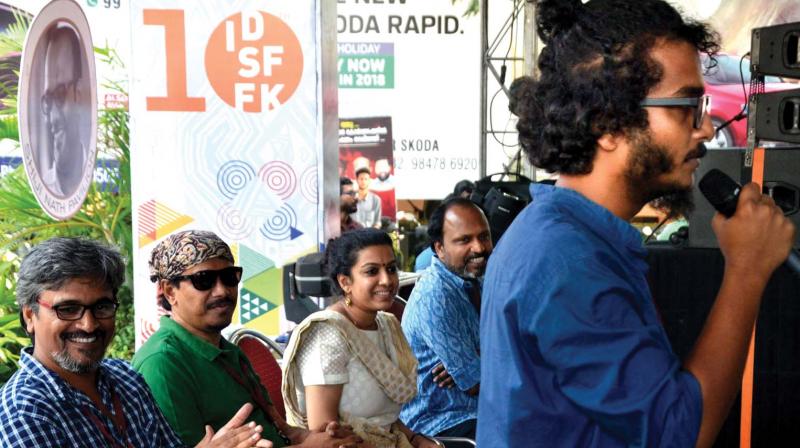Centre taking cultural intolerance to absurd limits: Ajayan Adat
Rotterdam festival authorities asked not to screen film made by Pune FTII students early this year.

THIRUVANANTHAPURAM: Banning three films, which incidentally were already screened at various festivals in the country, at the IDSFFK was not the most foolish thing the Information and Broadcasting Ministry had done in the recent past. It had done even worse. It had written to the Rotterdam festival authorities in Netherlands early this year asking them not to screen a diploma film made by Pune FTII students. The reason stated was that a member involved with the film had indulged in anti-national activities. If you thought there was a limit to absurdity, hold your breath. The Centre threatened diplomatic sanctions if this diploma film was screened.
The Rotterdam authorities, who might have been a lot bemused, not just shrugged off the threat but also went on to pick the film for the Tiger award for the best short film. The Chalachithra Academy, though it was prevented from screening three films, did extract its pound of flesh. It picked the Tiger winner, Sakhisona, as one of the inaugural films at the 10th IDSFFK. The Centre’s desperation to keep Pratik Narayan Basu’s Sakhisona out of Rotterdam was revealed by the experimental film’s sound designer Ajayan Adat at the IDSFFK here on Sunday. Adat, incidentally, is the anti-national crew member the I&B ministry had referred to while dictating the Rotterdam authorities to keep the film out or else.
“Our film was not even a political film like the three films that were banned. Sakshisona was an academic film where we tried to apply some of the theories that we had learnt,” Adat said. And, as if he just could not fathom the intolerance of the Centre, he added: “I am only the sound designer of the film.” Adat was taking part in an impromptu protest meeting held at the IDSFFK venue here on Sunday, along with the makers of the films that were banned. Fazil N.C, who along with Shawn Sebastian made the film In the Shade of Fallen Chinar, seemed overwhelmed by the response the ban has generated.
“It was my dream to screen the film at universities. Now, thanks to the ban, it is being screened everywhere without me having to do anything,” he said. Ramachandran P.N, who made The Unbearable Being of Lightness on the death of Rohith Vemula, was intrigued by the ban. “I would be naive to think that my film was scrapped for its power,” he said. He suspected that it was a red herring, a subterfuge, to divert attention from real issues like over-invoicing of coal, demonetisation woes, farmer distress and Lok Pal.

